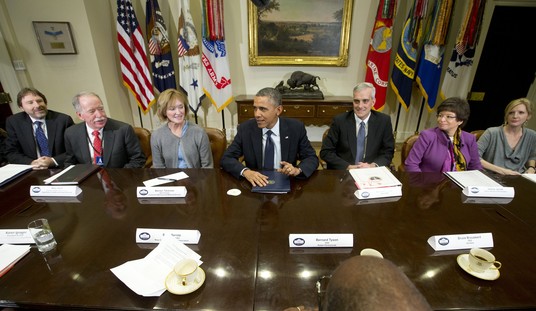This morning’s Gospel reading is Luke 12:49–53:
Jesus said to his disciples:
“I have come to set the earth on fire, and how I wish it were already blazing! There is a baptism with which I must be baptized, and how great is my anguish until it is accomplished! Do you think that I have come to establish peace on the earth? No, I tell you, but rather division. From now on a household of five will be divided, three against two and two against three; a father will be divided against his son and a son against his father, a mother against her daughter and a daughter against her mother, a mother-in-law against her daughter-in-law and a daughter-in-law against her mother-in-law.”
Back before I began blogging, I’d often have debates with friends and family over politics. These, of course, were the days when “social media” meant booze, and Facebook described my youth as a voracious reader. One of the frustrations in arguing politics, culture, or even religion was that no one recognized my genius, dagnabbit. And I often didn’t recognize anyone else’s unless they happened to recognize mine along the way.
This, by the way, is how you end up eating lunches by yourself, at least until you learn a little grace in debating. Failing that, start a blog and talk about other things with your friends and family.
Anyway, what became clear to me even apart from genuine differences of opinion and values is the long half-life of non-truth. Even when truth of fact could be independently established, people — myself included — tended not to believe it when it contradicted their own core values and beliefs. One could go to first sources and corroborate a point, and yet some would reject it or argue around it to maintain their point. It’s at those points in debates when things get heated and people become their most divided, because the point in any argument where people have the most at stake is on the factual basis of truth.
Jesus understood that, and likely so did his audience. This passage doesn’t just describe Jesus and his mission, but that of most of the prophets as well. From Moses to John the Baptist, the prophets brought truth to the Israelites, who often rejected both the truth and the prophet along with it.
Our first reading today comes from the life of Jeremiah, whose entire mission was to be recognized only in retrospect. Jeremiah prophesied about the destruction of Jerusalem but to no avail. The people treated the Temple as an idol, a kind of extortion over the Lord by claiming He would not suffer His holy place to be defiled and so they did not need to heed Jeremiah’s warnings. Confronted with the truth repeatedly from the Lord through Jeremiah, the king and other authorities preferred to kill the messenger instead. Jeremiah becomes mired in the mud of the cistern until a court official convinces the king that killing Jeremiah might not win the argument.
Jesus understood the divisive nature of truth, as did the prophets, because truth makes us choose. We have to get on one side or the other of real truth, once presented to us. Choosing is an act of division in itself, and Jesus wanted to make sure His disciples had no illusions about what the impact of His truth would be. The truth of God’s Word would divide even the closest of human relationships, not just neighborhoods, cities, and nations, although it would also divide those as well.
This teaches us that the main priority and/or core value of the Gospels isn’t unity between people. It’s the unity between each person and the Will of God. We are called to form ourselves to His Will individually, by choice, for love of Him. It is for the love of God that we love our neighbors, not the other way around. Forced unity in defiance of truth is not a loving act, even if we’re doing it to avoid conflict with our families and friends. We are called to love God first, embrace His truth, and live our lives in accordance with it — and hopefully teach others to do the same, which would produce earthly unity as a secondary outcome.
That, of course, is no small task. Espousing and defending that truth requires perseverance, a point Paul makes in our second reading from his letter to the Hebrews. We must strengthen our commitment to this mission — prophesying about the Word of God — by adhering ever more closely to His Will and rejecting sinfulness ourselves. The lives of the prophets, the mission and Passion of Jesus, and the long patience and perseverance of the Lord teaches us the way to persevere ourselves. “Consider how he endured such opposition from sinners,” Paul writes of the Lord in the long arc of salvation history, “in order that you may not grow weary and lose heart.”
The Lord continues to persevere with us to this day. Jesus left us the sacraments in part to attest to the Lord’s presence in our lives, and the way He strengthens us for our own missions as priests, prophets, and kings in His creation. In that way, we can strive to fulfill the Lord’s wish to have His children willingly and joyfully unite with Him in the next life, and so unite with all of us as well. That is why we must choose the truth of the Gospel as our first priority and the reason to love our neighbors by not denying that truth, and persevere through the turmoil that choice creates.
For all other topics … read my blog.
The front-page image is a detail from “Jeremiah Lamenting the Destruction of Jerusalem,” 1630 by Rembrandt. On display at the Rijksmuseum. Via Wikimedia Commons.
“Sunday Reflection” is a regular feature, looking at the specific readings used in today’s Mass in Catholic parishes around the world. The reflection represents only my own point of view, intended to help prepare myself for the Lord’s day and perhaps spark a meaningful discussion. Previous Sunday Reflections from the main page can be found here. For previous Green Room entries, click here.








Join the conversation as a VIP Member